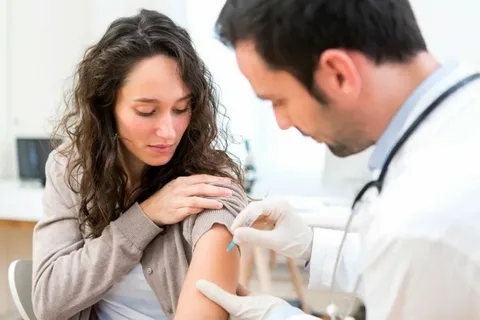Safeguarding Community Health Through Preventive Primary Care
Vaccinations and immunizations are among the most powerful tools in modern medicine. They not only protect individuals from deadly diseases but also contribute to community-wide immunity that can prevent the spread of infections. At LocalMd, we firmly believe that vaccinations are a cornerstone of proactive health management—and that journey begins with comprehensive Primary Care.
Through consistent patient education, scheduled immunization programs, and a tailored approach to preventive care, Primary Care providers play an essential role in keeping both individuals and communities protected from preventable diseases.
What Are Vaccinations and Why Do They Matter?
Vaccinations involve the administration of a substance—often a weakened or inactive part of a particular organism—that stimulates the body’s immune system to recognize and fight disease without causing illness. Immunizations help create long-lasting immunity, significantly reducing the risk of infection or minimizing the severity of illness.
Vaccines have been instrumental in reducing, and in some cases eliminating, deadly diseases such as:
-
Polio
-
Measles
-
Diphtheria
-
Hepatitis B
-
Tetanus
-
COVID-19
Primary Care clinics act as the frontline hub for delivering these life-saving interventions.
The Role of Primary Care in Vaccination Programs
Primary Care is the most effective platform for organizing, administering, and tracking immunizations. Whether it’s a pediatric patient needing routine childhood vaccines or an older adult requiring a shingles or pneumococcal vaccine, Primary Care providers ensure timely, appropriate delivery based on age, health status, lifestyle, and exposure risks.
At LocalMd, our care teams integrate vaccination reviews into every patient interaction—annual checkups, chronic disease follow-ups, and urgent care visits—to prevent missed opportunities for immunization.
Childhood Vaccinations: Building Immunity from the Start
From birth, children follow a structured immunization schedule that is essential to protecting them from life-threatening illnesses. This includes vaccines for:
-
Hepatitis B
-
DTaP (Diphtheria, Tetanus, Pertussis)
-
Polio
-
MMR (Measles, Mumps, Rubella)
-
Varicella (Chickenpox)
-
Rotavirus
Primary Care providers guide parents through this schedule, ensuring that every vaccine is administered on time and recorded for school or childcare compliance. Additionally, they offer reassurance and education to parents who may have concerns about vaccine safety.
Adult Immunizations: Prevention Beyond Childhood
Immunization doesn’t end after childhood. Adults, especially those with chronic conditions or weakened immune systems, also require vaccines to stay protected. Key adult vaccines include:
-
Influenza (flu shot) – administered annually
-
Tetanus, Diphtheria, Pertussis (Tdap) – every 10 years
-
Shingles (Herpes Zoster) – for individuals 50 and older
-
Pneumococcal vaccines – for seniors and those with certain conditions
-
HPV (Human Papillomavirus) – for younger adults
-
COVID-19 boosters – as recommended
Primary Care providers monitor your vaccine history and ensure timely boosters to maintain optimal protection throughout your life.
Protecting Vulnerable Populations
Vaccinations are especially important for protecting vulnerable populations such as:
-
Infants and young children
-
Pregnant women
-
Elderly adults
-
People with chronic illnesses (diabetes, asthma, heart disease)
-
Immunocompromised individuals
Through routine assessments and customized vaccination plans, Primary Care teams help minimize health risks for those who are most at risk of complications from infections.
Public Health Impact: The Role of Herd Immunity
Vaccinations don’t just protect individuals—they protect entire communities through herd immunity. When a significant portion of a population is immunized, the spread of disease slows or stops, protecting those who can’t be vaccinated due to medical conditions.
Herd immunity is especially crucial in preventing outbreaks of diseases such as measles and whooping cough. Primary Care plays a pivotal role in maintaining high community immunization rates, thereby safeguarding public health.
Addressing Vaccine Hesitancy Through Patient Education
One of the biggest challenges today is vaccine hesitancy—patients delaying or refusing vaccines due to fear, misinformation, or distrust. Primary Care providers are trusted voices who can bridge this gap.
By engaging patients in open, empathetic conversations and providing science-based information, providers help debunk myths and promote vaccine confidence. This one-on-one relationship is vital in overcoming resistance and ensuring higher immunization rates.
To explore the latest data on vaccine safety and effectiveness, check guide on immunization best practices from the CDC.
Travel Vaccines and Occupational Requirements
For those traveling abroad or working in specific industries, vaccinations may be required or strongly recommended. Primary Care clinics are equipped to provide:
-
Travel-specific vaccines (Yellow Fever, Typhoid, Hepatitis A)
-
Occupational immunizations (Hepatitis B for healthcare workers)
-
Custom vaccine schedules based on individual travel plans and work exposure
Consulting a Primary Care provider well in advance ensures compliance with international health regulations and protection against region-specific diseases.
Digital Record Keeping and Vaccine Tracking
Modern Primary Care practices like LocalMd utilize electronic health records (EHRs) to track vaccination history efficiently. This:
-
Ensures no dose is missed or repeated unnecessarily
-
Helps patients access their immunization records quickly for school, travel, or employment
-
Enables providers to flag upcoming or overdue vaccines during visits
This streamlined approach makes vaccine management more accessible and reliable for every patient.
Conclusion: Immunizations Are a Lifeline in Primary Care
Vaccinations are not optional—they are essential. They protect lives, reduce disease burdens, and foster healthier communities. Without proactive Primary Care, immunization schedules can fall through the cracks, putting individuals and the public at risk.
At LocalMd, we’re dedicated to ensuring our patients receive timely, accurate, and comprehensive vaccine services. Whether you’re a parent, a frequent traveler, or someone managing a chronic illness, our team is here to keep your immunizations up to date and your health on track.




